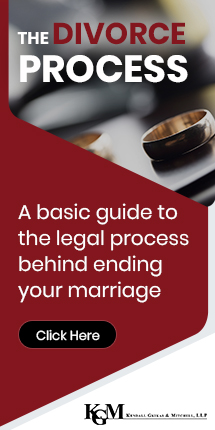California treats all savings accumulated during a marriage as joint property but you must follow special procedures when splitting certain accounts.
 It’s never too early to begin saving for retirement, so no matter what age you and your partner may be when you decide to divorce, you will probably need to consider what to do about your pension, retirement accounts, and Social Security benefits. Any savings that came from earnings during the marriage should be considered communal property under California divorce law. This includes contributions to retirement accounts. Contributions made before the marriage or after separation will belong to the spouse that made them. While retirement savings should be split in a divorce, depending on the type of account they are kept in you may need to follow some special procedures. Here’s an overview of how to deal with common kinds of retirement accounts and benefits.
It’s never too early to begin saving for retirement, so no matter what age you and your partner may be when you decide to divorce, you will probably need to consider what to do about your pension, retirement accounts, and Social Security benefits. Any savings that came from earnings during the marriage should be considered communal property under California divorce law. This includes contributions to retirement accounts. Contributions made before the marriage or after separation will belong to the spouse that made them. While retirement savings should be split in a divorce, depending on the type of account they are kept in you may need to follow some special procedures. Here’s an overview of how to deal with common kinds of retirement accounts and benefits.
Dividing an IRA
In order to divide an IRA without early withdrawal penalties or tax consequences, you need to specify in your asset division agreement that it be treated as a “transfer incident to divorce.” This will allow the IRA custodian to complete either a transfer or a rollover and create a separate account for each spouse.
Dividing a Pension
If you have a pension (a defined benefit plan) or a 401k (a defined contribution plan) these are both examples of “qualified retirement plans” and therefore must be divided using a “qualified domestic relations order.” Again, this must be specified in the divorce agreement if tax consequences are to be avoided.
Social Security Benefits
Social Security benefits are the only kind of retirement “savings” that actually don’t have to be divided. A divorced spouse can decide to take Social Security benefits based on their ex’s income without affecting the size of their ex’s benefits. In most cases the ex doesn’t even know their former spouse is taking benefits. In general, you must have been married for at least 10 years and currently unmarried in order to get spousal benefits. If you have been married and divorced or widowed multiple times the SSA will ensure you collect your spousal benefit from the highest earning former spouse.
Need Help or Advice?
Sometimes, couples might be tempted to just buy each other out of retirement accounts because they don’t understand how to divide them. This is actually not the best idea unless one spouse needs the cash immediately. Typically the account will grow in value over time and you will end up with a much larger asset when you reach retirement than if you took the cash right now. If you want help understanding how divorce will affect your future finances, you might want to consider consulting both a divorce attorney and a financial planner specializing in divorce.


